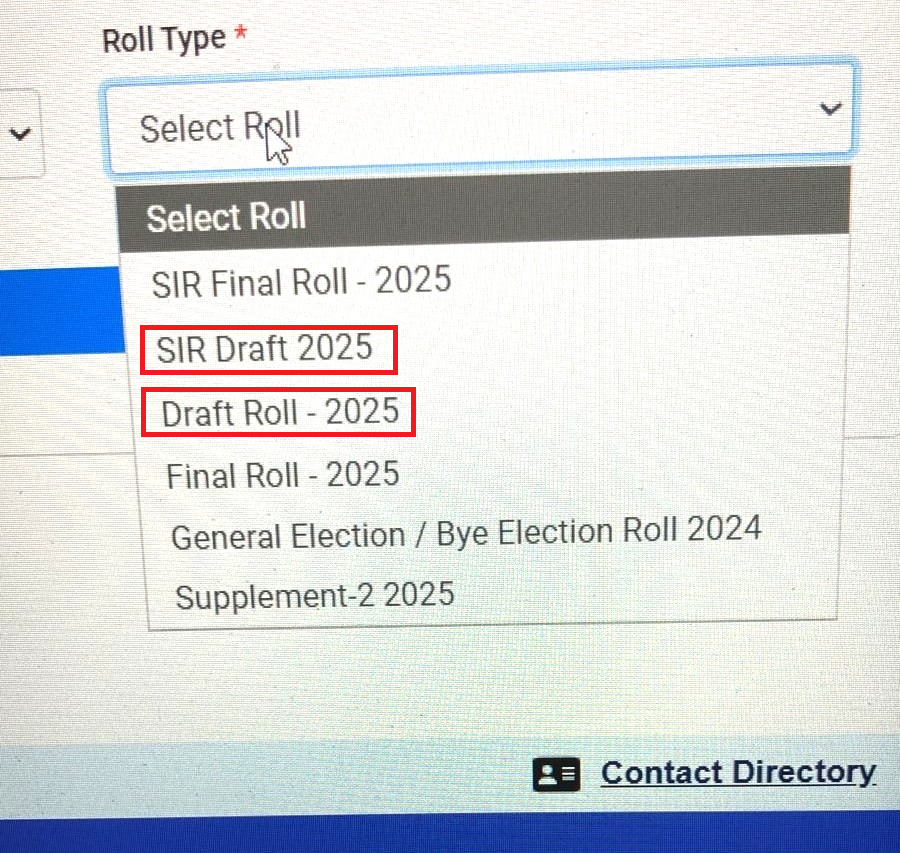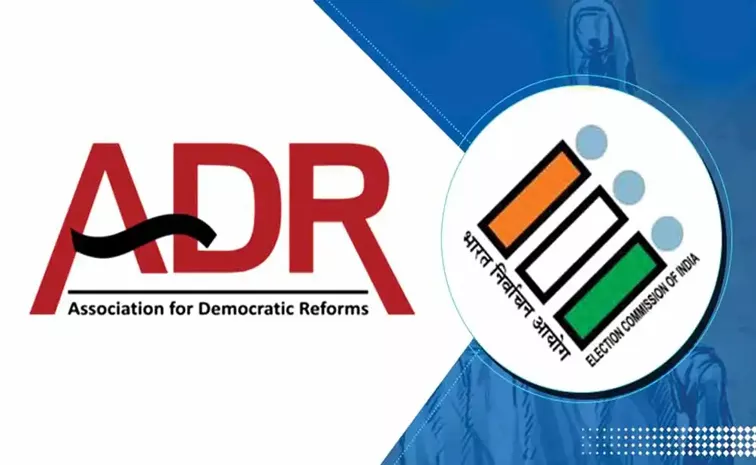Following media reports on October 10, 2025, that raised questions about an affidavit presented in the Supreme Court, the Association for Democratic Reforms (ADR) on October 11, has issued a detailed clarification. The reports cited the Election Commission of India (ECI) counsel, who allegedly pointed out “inaccuracies” in the said affidavit, prompting the Court to question the credibility of the information shared.
ADR has issued a clarification in response, presenting its version of events and reiterating its stated commitment to accuracy, transparency, and non-partisan public interest work
Background
During the hearing on October 9, 2025, senior advocate Rakesh Dwivedi, representing the Election Commission, alleged that ADR submitted incorrect and unverified information in its plea. Specifically, he pointed out a case where the person cited by ADR as having been excluded from the final voter list was not even included in the draft electoral roll. Further complicating matters, the details provided appeared to correspond to a different individual—a woman—raising questions about the accuracy of the information presented.
The Supreme Court Bench, led by Justice Surya Kant and Justice Joymalya Bagchi, expressed significant concern over ADR’s conduct, remarking, “We wonder if such a person even exists.”
Defending the submissions, ADR’s counsel Prashant Bhushan stated that the information had been provided by a “very responsible person” and suggested that the District Legal Service Authority could assist in verifying the claims. Despite this, the court remained unconvinced and declined to issue any blanket relief based on the affidavits, given their questionable nature.
Not filed, but shared on request, nature of the document clarified
On October 11, ADR clarified that the affidavit in question was not formally filed as part of court proceedings. Rather, it was tendered across the bar—a standard legal practice—only in response to a specific question from the Court.
The organisation emphasised that this distinction is important to prevent the mischaracterisation of its actions and intent during the hearing.
Verifiable details: voter information was accurate and public
The voter whose details were shared in the affidavit is a resident of 115, Shaheed Sthal Road, Gulzarbagh, Patna – 800007, with EPIC No. YHX3046307. His details appear at Serial No. 653 in Part No. 52 of the 184 Patna Sahib constituency, as recorded in the publicly available electoral roll on the ECI’s official website.
ADR asserts that every single detail furnished in the affidavit was accurate and verifiable through official ECI records—contradicting the claim that the elector was “fake” or improperly identified.
Draft roll confusion: same link, multiple versions
ADR further explained the likely source of the confusion. The elector or someone assisting him had probably checked his name in the “Draft Roll – 2025”, published by the ECI in January 2025, where his name was clearly listed.
The issue arose, ADR says, because the “Draft Roll – 2025” and the “SIR Draft 2025” are both hosted on the same webpage and dropdown menu on the ECI’s website. This technical overlap may have led to misunderstanding or misinterpretation in the courtroom.
“That with regard to the elector’s statement that his name appeared in the draft roll, it is clarified that the elector/someone on his behalf had possibly checked his name on the “Draft Roll – 2025” of January 2025 on which his name was duly mentioned. It is to be noted that both the “Draft Roll- 2025” and “SIR Draft 2025” have been published by the ECI on the same web link and same drop-down menu (as shown in the image below) available at https://voters.eci.gov.in/download-eroll?stateCode=S04. His details are available on the Draft Roll – 2025 for AC 184 Part No. 52 at Serial No. 653, and every detail furnished in the affidavit matches that record” ADR stated

Screenshots of the elector’s name on Draft Roll – 2025, Final Roll – 2025, SIR Deleted List, and his current status
The records clearly show that the voter was listed in the Draft Roll and subsequently excluded—pointing to a possible procedural lapse, not misrepresentation.
Shahid Voter Status
Misleading allegations: ADR refutes claim of falsification
ADR called the ECI counsel’s claim—that the EPIC number belonged to another person or that the voter was non-existent—misleading and avoidable. The organisation pointed out that a simple EPIC number lookup on the ECI portal would have verified the details without ambiguity.
Instead, ADR says, an inaccurate assertion was made in court, which risked damaging its credibility and caused undue distress to the elector involved.
Voter under duress
ADR expressed serious concern over the treatment of the elector, who has allegedly been summoned, hounded, and threatened by officials following the court hearing.
Such action, the organisation warns, could discourage voters from speaking up about their deletion from rolls or from seeking redress when proper procedures—like speaking orders—are not followed by the authorities.
”It is highly unfortunate that the said elector is being hounded, summoned, and threatened by the officials since the Supreme Court’s hearing dated 07.10.2025. This will further create more distrust, fear, and reluctance on the part of electors to come forward in case of their deletion from the electoral rolls or in case speaking orders have not been given to them” ADR said
We continue to stand by fact-based, non-partisan work: ADR
ADR concluded its statement by reaffirming its commitment to fact-based, non-partisan work. For over 25 years, the organisation has built trust among voters, civil society, and institutions by providing accurate, data-driven insights into electoral and governance issues.
ADR in its statement assured the Courts, lawyers, and voters that we continue to stand by fact-based, non-partisan work.
Related
India’s election system is being weaponised, will the Opposition act?
